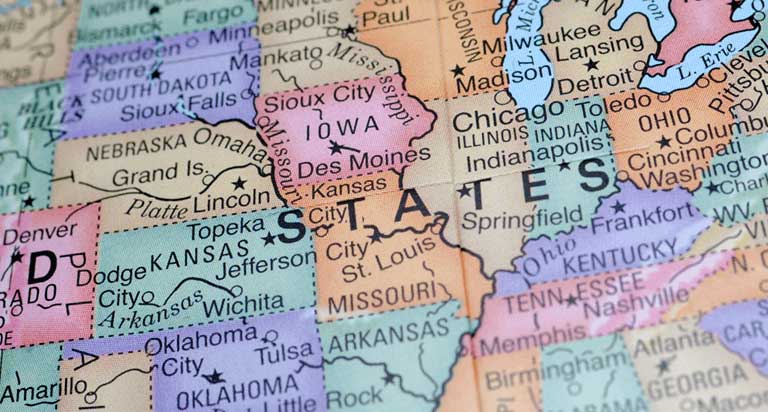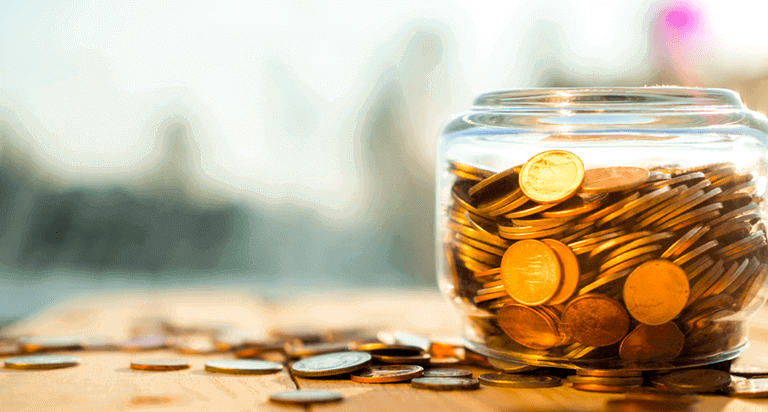How to Improve Your Credit Score
There are things you can do to increase your credit score no matter your credit situation. Learn the basics of how to build credit, how to use credit cards and practice positive credit behavior. [Duration - 1:35]
Highlights:
- If you're looking to improve your credit score and establish positive credit behavior, there are multiple options available.
- Start the process by learning how credit scores are calculated so you can practice positive credit behavior.
- Remember: Improving your credit score takes effort and patience. There's no one-size-fits-all solution that will increase your credit score overnight.
Many banks and credit card companies offer credit score dashboards and maybe you've already checked yours. Now, you want to know how to increase your credit score. The good news is, with effort and patience, it's possible — regardless of your unique credit situation.
Before we dive into the ways you can improve your credit score, let's start with some basics.
How is your credit score calculated?
Credit scores are calculated using the information found in your credit reports. It's a common myth that you have only one credit score. In reality, credit scores can vary depending on the scoring model used to calculate them.
Your credit score could also vary based on which nationwide consumer reporting agency — Equifax, TransUnion or Experian — provides the data. This is because not all lenders and creditors report to all three agencies. Some report to only one or two, or even none at all. Thanks to all these variables, you have multiple credit reports and credit scores.
Although scoring models vary, they usually consider the following:
- Payment history. Your payment history, or how consistently you pay your bills on time, is usually the biggest factor in calculating your credit score. Because it's such an important component, late or missed payments can have a significant overall impact on your score.
- Credit utilization rate. Your credit utilization rate is the amount of revolving credit you're using divided by your total available credit across those accounts. Lenders often like to see a credit utilization rate at or below 30 percent. Having available credit indicates that you're only using the credit that you need, which may be a positive sign for lenders.
- Credit age. Lenders generally want to see established lines of credit. This means that you should keep credit accounts open (even if you no longer use them) because closing them could shorten the overall length of your credit history.
- Credit mix. Credit mix refers to your variety of account types, including credit cards, student loans and mortgages. Maintaining variety, along with a solid payment history, can suggest to lenders that you understand the fundamentals of credit.
- Amount you owe. The amount you owe at any given time is the sum of your balances across your lines of credit. It's typically best to pay off all your balances every month, if possible. Doing so helps keep the amount you owe low and shows lenders that you can make on-time payments.
- Hard inquiries. Hard inquiries occur when a lender or creditor checks your credit after you apply for a new line of credit. Frequent hard inquiries can negatively impact your credit score and may suggest to lenders that you are trying to take out more credit than you could reasonably repay.
How do you improve your credit score?
The specific steps that can improve your credit score will vary based on your unique credit situation. But here are some things to consider that can help almost anyone boost their credit score:
- Review your credit reports. When looking to improve your credit score, a good first step is to review your credit reports from all three of the nationwide consumer reporting agencies. After making sure there are no inaccuracies or signs of identity theft and fraud, check to see if you have any unpaid balances or accounts that have gone into collections. It's a good idea to tackle this negative information first by paying off as many old debts as you can.
- Pay on time. One of the best things you can do to improve your credit score is to pay your debts on time and in full whenever possible. Payment history makes up a significant chunk of your credit score, so it's important to avoid late payments. If you struggle with on-time payments, consider using automatic payments for your accounts or setting up alerts so you are reminded to pay.
- Keep your credit utilization rate low. As mentioned above, it's typically best to keep your credit utilization rate at or below 30%. Outside of reducing your spending, you can lower your utilization rate by asking your credit card company for a credit limit increase.
- Limit applying for new accounts. Applying for new lines of credit will usually lead to a hard inquiry, which can negatively affect your credit score. So, if you're hoping to improve your score, try to limit how often you apply for new accounts. Opening a new line of credit can also decrease the average age, or length, of your credit history, which is another factor used in calculating your credit score.
- Keep old accounts open. When trying to increase your score, avoid closing any old accounts that have been paid off, even if you no longer use them. Keeping the accounts open will help maintain the length of your credit history.
How long does it take to see changes in your credit score?
The amount of time it takes to improve a damaged credit score varies depending on your circumstances, but it will likely require a bit of patience and won't happen right away.
Some negative factors are easier to overcome than others. For example, it may take you less time to bounce back from one late payment or a few hard inquiries than from a foreclosure or having an account go into collections.
Most negative information, like late payments, will generally remain on your credit report for up to seven years. However, Chapter 7 bankruptcies can linger for up to 10 years.
Just remember: Improving your credit score takes effort and patience. There's no one-size-fits-all solution that will change your credit score overnight.
How do you build or establish credit?
As previously mentioned, payment history can significantly impact your credit score. If you have a “thin” credit file — meaning you have few or no credit accounts and only a brief credit history — then there may not be enough information in your credit report to calculate a credit score or it may be lower than you'd like.
If this is the case, you'll need to take steps to establish a longer credit history before you can focus on improving your credit score.
- Secured credit cards. Secured credit cards are designed to help the user build credit history, making them a perfect first step. A secured card requires that you make a deposit up front, usually the same amount as your suggested credit limit. The card then works like any other credit card, with on-time payments contributing toward a positive credit history.
- Student credit cards. You may also consider a student credit card if you qualify. You will likely have to provide proof that you are enrolled in school, but these cards are similarly aimed at helping build credit and establish a credit score.
- Authorized user. One way to start building credit without applying for a credit card yourself is to become an authorized user on the credit card account of a parent, spouse or other family member. As an authorized user, you would receive a credit card with your name on it and reap the benefits of making on-time payments, but the account itself would not be in your name.
- Co-signer. A co-signer is a person who agrees to be legally responsible to pay a debt, such as a car or student loan, if the borrower does not pay back the loan as agreed. Having a co-signer may allow you to secure better loan terms or qualify for a loan you might not otherwise get. In turn, you can begin to build credit, but if you fail to pay, your co-signer will be responsible for the debt.
- Utility and rent payments. You can also ask your landlord or your utility companies to report your on-time payments to the three nationwide consumer reporting agencies. Although these kinds of payments typically don't appear on credit reports, if you know you have a positive payment history, you may be able to have them considered in your favor.
Where can you find other credit education resources?
For more information on credit scores, reports and histories, be sure to check out these additional resources from Equifax:
What to Do If You've Been Denied Credit. Find out why lenders may deny you credit and steps you can take if you are denied.
How Can I Check Credit Scores? There are a few ways that you can check important information when it comes to your credit score.
Why Do Credit Scores Fluctuate? It's completely normal for credit scores to fluctuate. Learn why here.
7 Things That Won't Hurt Your Credit Scores. It's important to know that not every action impacts your credit scores.
Can Medical Debt Impact Credit Scores? Learn how medical debt may be reported to the three nationwide consumer reporting agencies.
What Information Is in a Credit Report? Learn more about credit reports and the important information you should regularly review.

